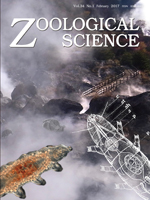Juvenile hormone (JH) plays a crucial role in the determination of developmental timing in insects. In Drosophila melanogaster, reports indicate that JH titers are the highest immediately following eclosion and that the mating experience increases the titers in females. However, the titers have not been successively measured for an extended period of time after eclosion. This study reveals that JH titers are increased after eclosion in virgin females when supplied with food that is occupied by eggs and larvae as well as in mated females. With the presence of eggs and larvae, food induced the virgin females to lay unfertilized eggs. When combined with previous work indicating that females are attracted to such food where they prefer to lay eggs, these results suggest that flies can prepare themselves to lay eggs by changing the titers of JH under the presence of growing larvae, ensuring that the food is an appropriate place to oviposit.
How to translate text using browser tools
1 February 2017
Upregulation of Juvenile Hormone Titers in Female Drosophila melanogaster Through Mating Experiences and Host Food Occupied by Eggs and Larvae
Yasuhiro Sugime,
Dai Watanabe,
Yoko Yasuno,
Tetsuro Shinada,
Toru Miura,
Nobuaki K. Tanaka
ACCESS THE FULL ARTICLE

Zoological Science
Vol. 34 • No. 1
February 2017
Vol. 34 • No. 1
February 2017
feeding
JH
JHB3
mating
oocyte
oviposition
unfertilized egg




